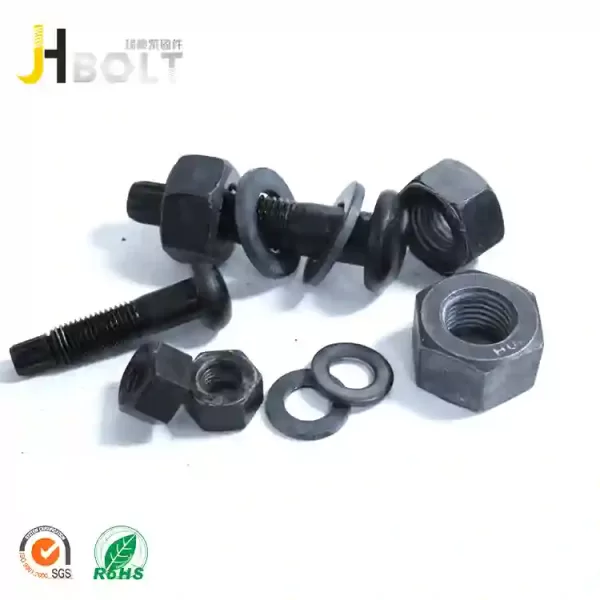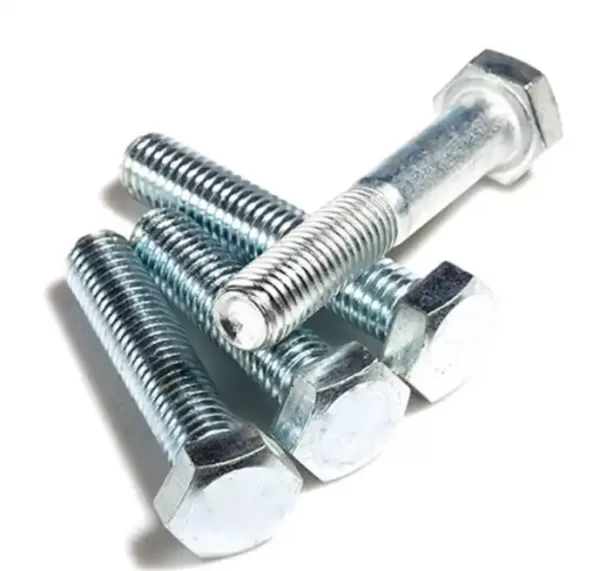Introduction:
Stainless steel hex bolts are widely recognized for their exceptional durability, corrosion resistance, and versatility. These fasteners, characterized by their six-sided heads, play a crucial role in various industries and applications. This article aims to explore the features, benefits, and common uses of stainless steel hex bolts, highlighting their significance in modern construction and engineering.

- Features of Stainless Steel Hex Bolts:
Stainless steel hex bolts possess several notable features that contribute to their widespread usage:
a) Corrosion Resistance: Stainless steel is renowned for its resistance to rust and corrosion, making hex bolts suitable for both indoor and outdoor applications, even in harsh environments.
b) Strength and Durability: The unique combination of alloying elements in stainless steel grants hex bolts exceptional strength, ensuring they can withstand heavy loads and high-pressure conditions.
c) Aesthetic Appeal: The sleek and polished appearance of stainless steel hex bolts adds a touch of elegance to structures, making them ideal for applications where aesthetics matter.
- Benefits of Stainless Steel Hex Bolts:
The utilization of stainless steel hex bolts offers numerous advantages to industries and end-users:
a) Longevity: Stainless steel hex bolts have an extended service life due to their resistance to corrosion, temperature variations, and mechanical stress, reducing the need for frequent replacements.
b) Reliability: The high tensile strength of stainless steel hex bolts ensures reliable and secure fastening, providing stability and structural integrity to various assemblies.
c) Versatility: Stainless steel hex bolts come in a wide range of sizes, thread pitches, and lengths, making them adaptable to diverse applications across industries such as construction, automotive, aerospace, and marine.
d) Maintenance Ease: Stainless steel hex bolts require minimal maintenance, as they do not require additional coatings or treatments to maintain their corrosion resistance or structural integrity.
- Common Uses of Stainless Steel Hex Bolts:
Stainless steel hex bolts find application in various sectors, including:
a) Construction: Hex bolts are extensively used in construction projects, such as building frames, bridges, and infrastructure, where their strength and corrosion resistance are vital for long-term structural stability.
b) Automotive Industry: Hex bolts are employed in the automotive sector for assembling engine components, chassis, and body parts, ensuring safety and reliability in vehicles.
c) Manufacturing and Machinery: Hex bolts play a crucial role in machinery assembly, equipment manufacturing, and industrial maintenance, providing secure fastening in heavy-duty applications.
d) Marine and Offshore Structures: The corrosion-resistant properties of stainless steel hex bolts make them indispensable in marine environments, including shipbuilding, offshore platforms, and coastal infrastructure.

Conclusion:
Stainless steel hex bolts are indispensable fasteners known for their durability, corrosion resistance, and versatility. Their exceptional strength and aesthetic appeal, coupled with longevity and reliability, make them a preferred choice across various industries. From construction to automotive and manufacturing to marine applications, stainless steel hex bolts contribute to the stability and integrity of countless structures and assemblies. As technology advances, these fasteners will continue to be an essential component in engineering and construction projects, ensuring safety, longevity, and efficiency.

